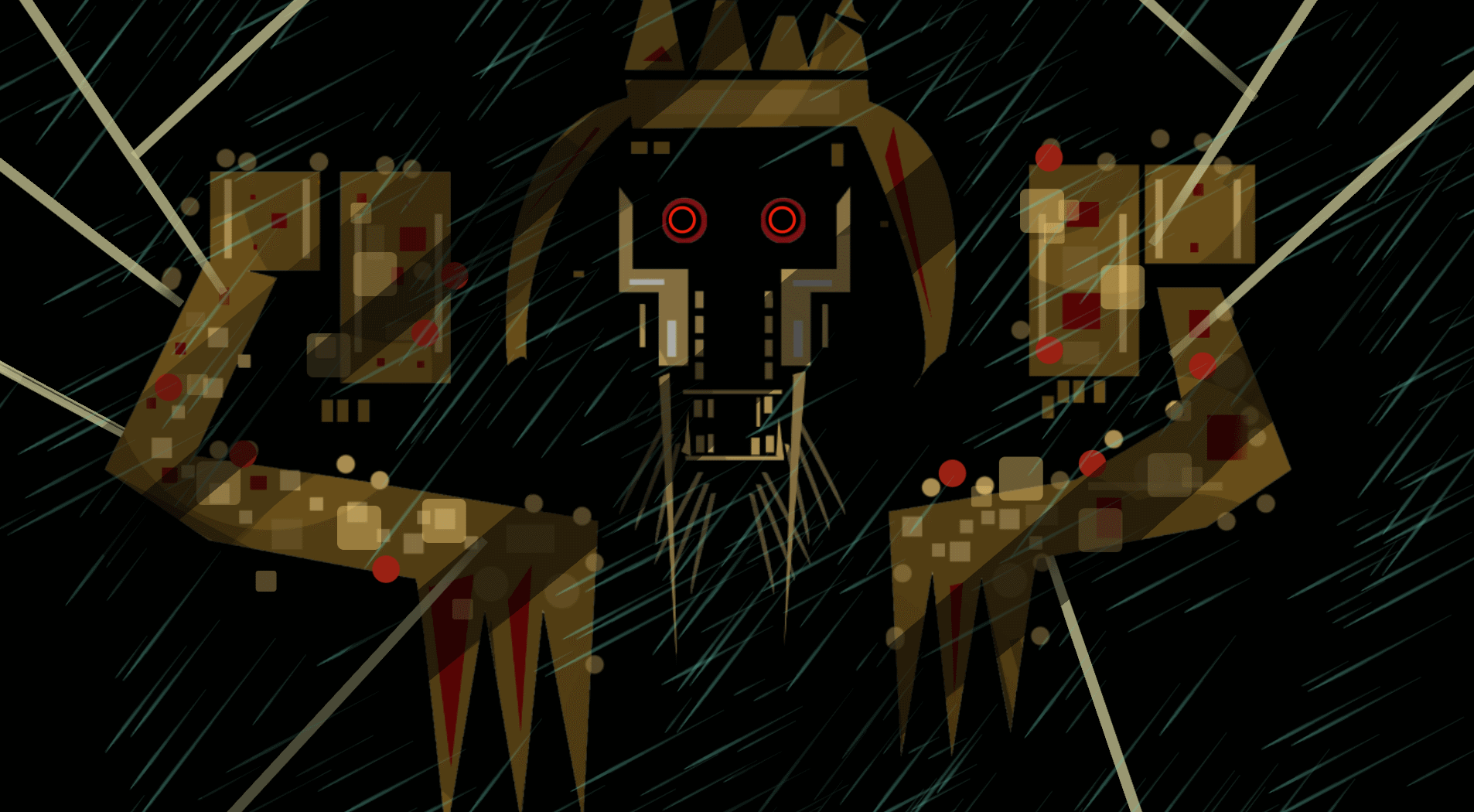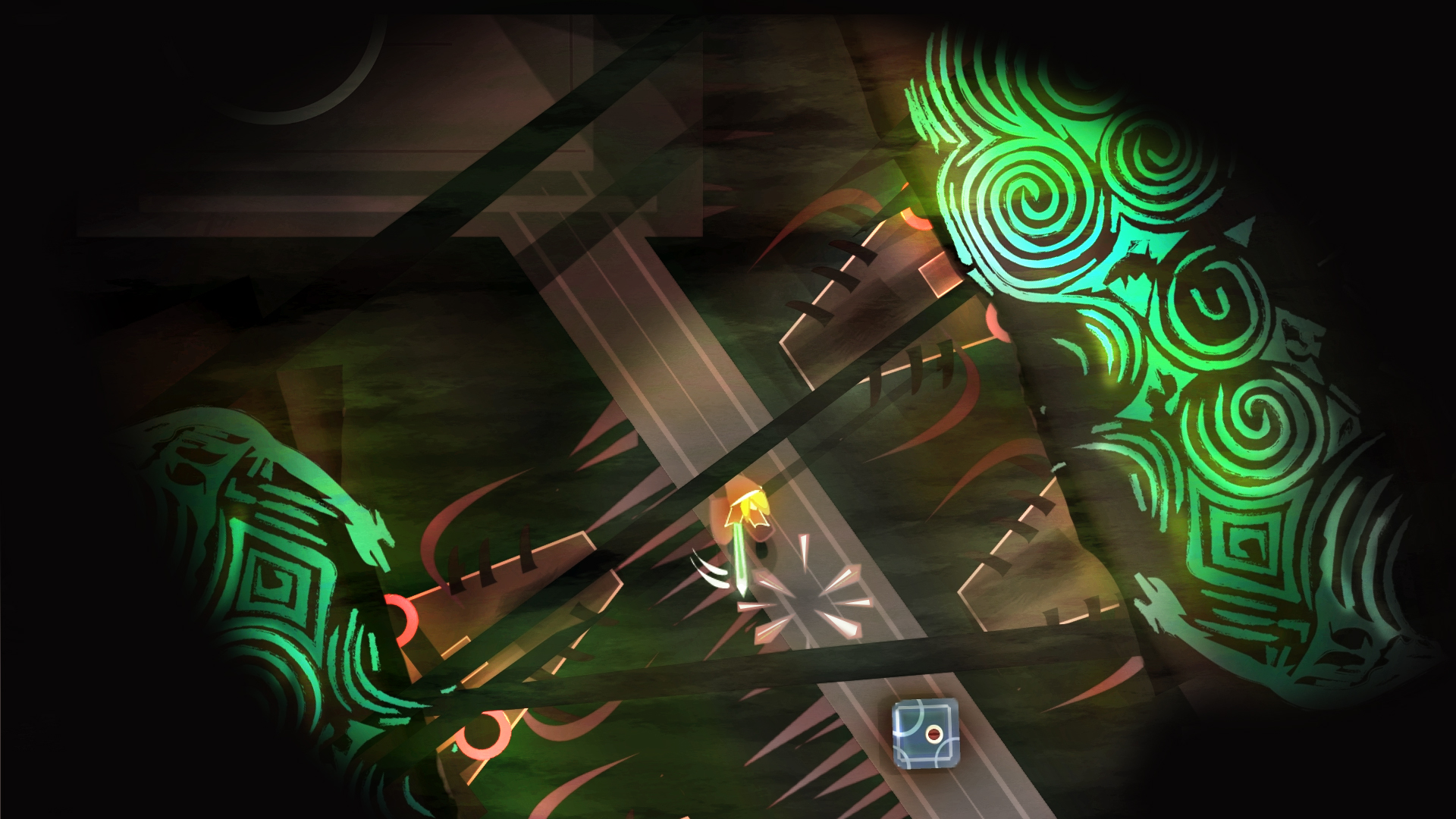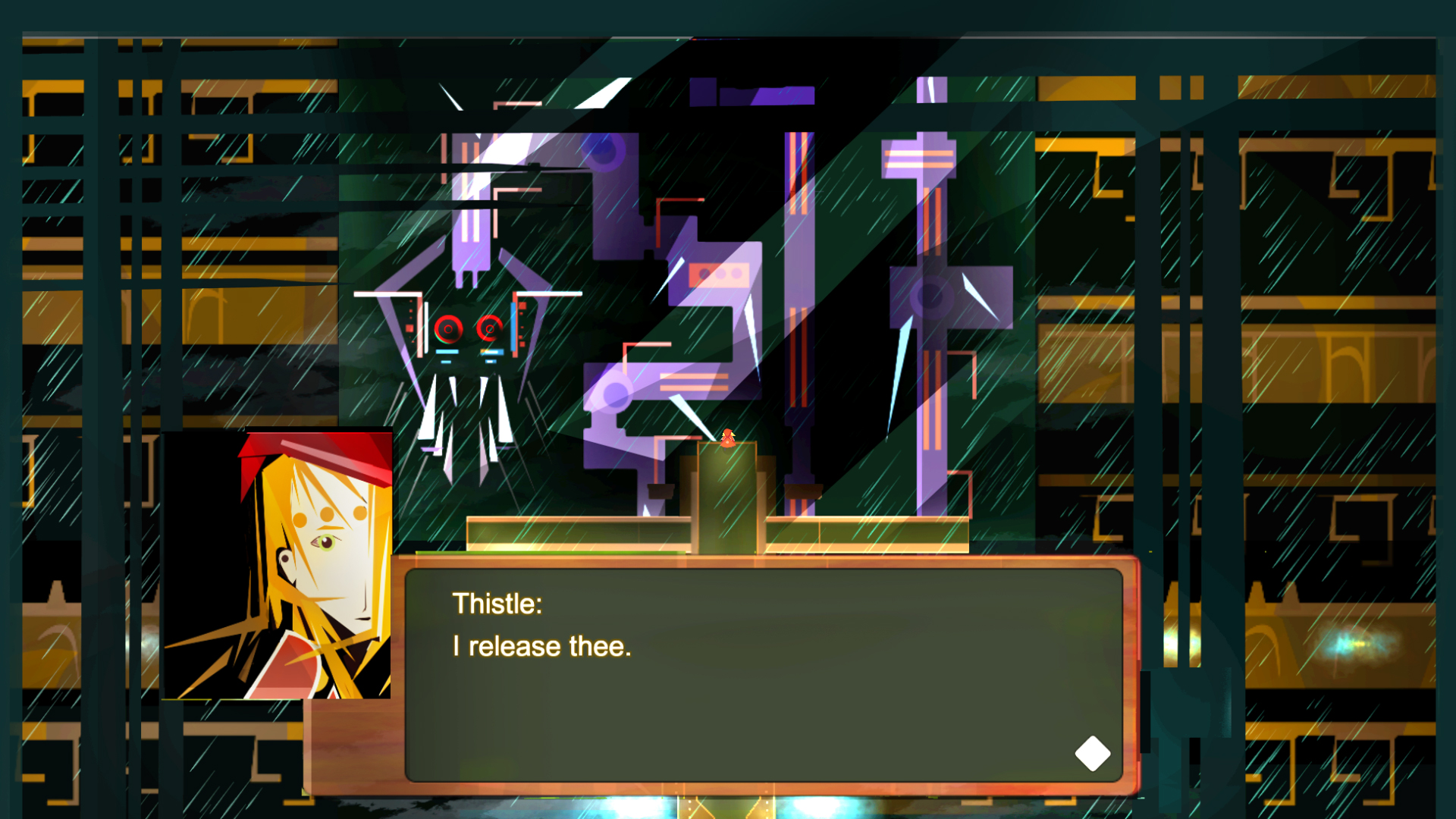Still Games’s Animal Gods is another Kickstarter that sounded good on paper, but when I saw the demo video, I closed the page and didn’t think much of it unless I saw a news update. A vaguely mythological title drawing inspiration from the Zelda series captured my attention, but once again, the visuals and action in the preview turned me off. Recently though, I was offered a review code and figured I should at least give the game a chance.
The opening lines, with their dual sentences with nearly identical form, inversion, or exacerbating of the previous line, seemed particularly myth inspired and especially reminded me of Ainu mythology, though not exclusively. Yes readers, though I may freelance as a game writer, I have a strong interest in myths and symbolism. The narration and language of the game really feeds that part of me, right from the start, especially when our heroine’s name is “Thistle,” which tends to symbolism both pain and protection. Story wise, the game is ready to grab those who notice these things.
Next came the visuals. Text on and off the map are dramatic, and slightly immersion breaking, but maybe that’s a good thing. Combined with the simple, flat, angular art, it gives a primitive, tribal story book feel to Animal Gods. Clouds, trees, and other overhead objects obscuring the path help make the world feel bigger despite the fact that you’re on fairly linear tracks. Combined with the game’s sound track, the overall mood is often rather fitting. The only thing really lacking are sound effects.
Thistle’s deaths (which you’ll have many of) having no sound feels wrong. Even a sigh would be better than nothing. Despite the claim of a Zelda influence, the game often felt more like like a Mario level (without mushrooms, since you die every time something touches you). The game introduces an item and a gameplay concept, gives you a simple task, and gradually increases the difficulty with little to no textual explanation. The context alone is fine, and in terms of game design, this is perfect. This is what all developers should aim for. The only problem is, the actual game is kind of, well, boring.
Zelda is fun because we get several items and have to decide which one to use in what context. Animal Gods, on the other hand, generally limits you to one tool per level out of three, aside from the very last level. Even then, it’s obvious which tool you need to use due to the lack of options. If the game weren’t so linear, maybe it would be more difficult to realize this. Maybe if items had more uses, like hitting levers or activating switches, they’d be more interesting, but for the most part, motivation wasn’t the game mechanics but discovering the story.
After the initial introduction, the player has no direct narration from Thistle about who we are, where we are, or really what we’re doing. Diary entries are our only link to the greater narrative, which felt like a bold move. We’re not reading these entries within the whole context. Without ever fleshing out who Thistle is, where we are and where we came from, diary entries are our only link to what’s going on in the story. They provide no power, no achievements, no nothing, but because of the narration techniques and minimalist approach, I really felt like I had to find all the entries, which isn’t difficult, but challenging enough to hold my attention, despite my dislike of the game’s action.
The bow and sword feel rather basic, in that you simply time your attack to hit enemies as they pass or become blocked by other objects, but the flame cloak gameplay actually is interesting. Warping is neat, but the angles, spacing, and limitation of the controls, while frustrating, also make it feel more interesting.
You need to be rather precise though. In most games, when I’m frustrated, I can just kind of “power through” and let my twitch instincts take over. Unless I’ve suddenly lost that ability, it didn’t work in Animal Gods. I had to stay patient and keep my emotions in check or I’d fail.
This becomes complicated by the fact that, after awhile, you may feel like you have no idea what you’re doing. Due to the diaries, I questioned not only their author, but all the characters. I wasn’t sure what to think of who I was or what I was doing. I wasn’t even sure who to trust. And I loved it. The gameplay is punishing but fair when its interesting, but following the diary was what initially made it feel worth my time. If, however, you’re not into the story, I have a feeling you won’t be able to enjoy the game.
 While the story’s rich in narrative techniques, symbols, and themes at the start, the final chapter became a bit preachy. There are only four gods, or four “levels,” so the game’s rather short. After the first two levels, a new voice is introduced which takes a really great narrative and begins to pigeon hole it into a discussion that (without giving away spoilers) seems too “modern man” and not something I think that represents mythological ideals, which tend to emphasize balance. It does make you reflect upon your actions from the start of the game, but the plot reveal robbed something from the original ideas I thought the game was addressing, leaving the replay option you’re given at the game’s end to feel unnecessary. I wasn’t motivated to complete the game a second time. I felt I’d seen the end of the story and didn’t want to bother with more unsatisfying punishment without an explicit promise of new narration.
While the story’s rich in narrative techniques, symbols, and themes at the start, the final chapter became a bit preachy. There are only four gods, or four “levels,” so the game’s rather short. After the first two levels, a new voice is introduced which takes a really great narrative and begins to pigeon hole it into a discussion that (without giving away spoilers) seems too “modern man” and not something I think that represents mythological ideals, which tend to emphasize balance. It does make you reflect upon your actions from the start of the game, but the plot reveal robbed something from the original ideas I thought the game was addressing, leaving the replay option you’re given at the game’s end to feel unnecessary. I wasn’t motivated to complete the game a second time. I felt I’d seen the end of the story and didn’t want to bother with more unsatisfying punishment without an explicit promise of new narration.
For $10, I suppose the game is worth the money for the right people. I spent about six hours on the game, partially because I really wanted to explore. There are some glitches that allow you to leave the game’s pathways though, and the “last chapter” text that appears after the second level was more confusing than helpful (hint: if you enter a door to a town, you’re in the wrong place). Animal Gods is a solid game with a strong start, but the finish may not be enough for everyone.






